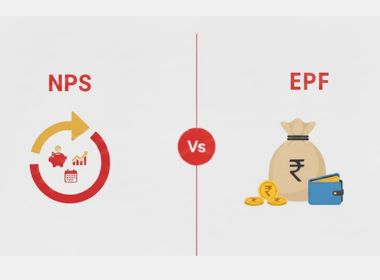Search Suggestions
- Gold Loan
- Money Transfer
- Mutual Funds

Understanding Term Life vs. Whole Life Insurance: Which Is Ideal for You?
Term and whole life insurance are the most prevalent forms of life insurance policies. While there are other options, many individuals focus on these two. Term life insurance offers affordable premiums, whereas whole life insurance provides lifetime coverage.
Choosing the best policy depends on your needs, goals, and budget. To help you decide which type of life insurance is right for you, we at the Guides Home Team have created a helpful comparison. We'll guide you through the differences between term insurance and whole life insurance and help you understand the benefits of the best life insurance.
What is Insurance?
Before we explore the various types of life insurance, let's first understand the importance of having life insurance. This context can help you make an informed decision about the right type of life insurance for you.
At its core, insurance provides protection against specific types of losses. Homeowners insurance safeguards you if your home is damaged, and auto insurance supports you if your vehicle is lost or damaged. Similarly, life insurance ensures that your loved ones are financially protected in case of unforeseen situations. Life insurance is one of the best investments that can fulfill various needs, such as replacing lost income, paying off a mortgage, covering the medical bills of the deceased, funding a child's future education, and more.
Suggested Read: Types Of Insurance Provided By Muthoot Finance
Suggested Read: Exploring the Different Types of Life Insurance Policies in India
Know the Difference: Term Life vs. Whole Life Insurance
Term life insurance is often the simplest to comprehend because it provides pure insurance coverage without any savings or investment aspects. The primary reason for purchasing a term policy is the assurance of a death benefit for your beneficiary if you pass away during the policy's term. Many individuals choose term life insurance to ensure their minor children are cared for and their mortgage is paid off in the event of their death.
Suggested Read: A Complete Guide To Group Term Life Insurance Plans In India
Whole life insurance is a type of policy that provides lifelong coverage, as the name suggests. It guarantees a death benefit payout to the designated beneficiaries, regardless of when the policyholder passes away, typically up to the age of 99. Unlike term life insurance, whole life insurance offers more than just a death benefit. It also incorporates a savings component, which allows the policyholder to accumulate cash value over time. This cash value feature adds an additional layer of financial flexibility and potential growth opportunities to the policy.
A standout feature of whole life insurance is its ability to accumulate savings over time and potentially provide income. Part of the premium you pay contributes to building this savings or income component, which typically grows at a guaranteed rate determined by the insurance company. The cash value accumulated can be accessed during the policyholder's lifetime through loans or withdrawals, offering a potential source of funds for emergencies, retirement, or other financial needs.
Compared to term insurance, whole life insurance carries higher premiums because it offers lifetime coverage and includes a savings or income component. It is ideal for individuals seeking long-term financial security, estate planning, or those wishing to leave a legacy for their beneficiaries.
Term Life Insurance vs. Whole Life Insurance
Coverage Duration
The key distinction between term insurance and whole life insurance lies in the duration of coverage. Term insurance policies provide protection for a predetermined, finite period, while whole life insurance extends coverage for the policyholder's entire lifetime.
Premiums
Term insurance typically features lower premiums as it covers a set term. In contrast, whole life insurance entails higher premiums due to lifelong coverage and the inclusion of a savings or cash value component.
Savings Component
Whole life insurance accumulates savings or generates income over time, which can be accessed by the policyholder at any point during their life. Term insurance usually lacks a savings component; however, newer options like the return of premium may reimburse the premiums paid if the policyholder survives until the end of the term.
Crucial factors to evaluate when choosing between term and whole life insurance policies.
Before determining the most suitable insurance type, consider the following factors:
Affordability
Term insurance boasts lower premiums, ideal for those with budget constraints.
Coverage Duration
For specific coverage needs, like until the financial independence of children or mortgage payoff, term insurance may be preferred.
Long-term Financial Goals
Whole life insurance ensures lifelong coverage and facilitates savings accumulation, catering to individuals with future financial aspirations.
Flexibility
Whole life insurance provides greater policy customization options, including rider additions or coverage adjustments over time.
Term insurance and whole life insurance fulfil unique roles and address diverse financial requirements. Term insurance offers economical coverage for a specified duration, while whole life insurance ensures lifelong security and incorporates savings or income provisions for future objectives. If you want to buy life insurance by comprehending these distinctions and evaluating your financial situation, you can make a well-informed choice that corresponds to your aspirations and preferences.
- Insurance
- Group Insurance
- Health Insurance
- Home Insurance
- Vehicle Insurance
- Life Insurance
- Travel Insurance
- Shop Insurance
CATEGORIES
OUR SERVICES
-

Credit Score
-

Gold Loan
-

Personal Loan
-

Cibil Score
-

Vehicle Loan
-

Small Business Loan
-

Money Transfer
-

Insurance
-

Mutual Funds
-

SME Loan
-

Corporate Loan
-

NCD
-

PAN Card
-

NPS
-

Custom Offers
-

Digital & Cashless
-

Milligram Rewards
-

Bank Mapping
-

Housing Finance
-

#Big Business Loan
-

#Gold Loan Mela
-

#Kholiye Khushiyon Ki Tijori
-

#Gold Loan At Home
-

#Sunherisoch
RECENT POSTS

Understanding Gold Bees: How it Works, Net Asset Value, Returns and More
Know More
Multi Cap and Flexi Cap Mutual Funds: How Are They Different?
Know More
Online Personal Loan vs. Offline Personal Loan - Which Is Better for You?
Know More
10 Tips to Improve Chances of Personal Loan Approval
Know More
10 Factors Affecting Mutual Fund Performance Explained Simply
Know More
10 Key Factors That Affect Your Personal Loan EMI
Know More
What Is Fine Gold? Meaning, Purity (999), Uses & Price Explained
Know More
Gold vs Silver: Which is Better as an Investment?
Know More
Why Gold Is a Safe Haven Asset: Meaning, Benefits & Real Examples
Know More
Gold or Bitcoin - Best Investment for Value Retention
Know MoreFIN SHORTS

The Best 7 SIF Funds of 2026: A Better Way to Invest
Know More
Gold Price Hits ₹1,40,000: How It Impacts Gold Loan Amounts
Know More
How to Check Loan Number: Step-by-Step Process
Know More
How to Open an SIP Account: Online and Offline Process
Know More
How Do I Apply for MSME Certification Online in India?
Know More
7 Important Reasons to Choose Hallmark Gold When Buying Jewellery
Know More
What Are Co-Pay and Deductibles in Insurance Policies?
Know More
Should You Take a Loan Against Your Mutual Fund or SIP?
Know More
Top 5 Best Mid-Cap Mutual Funds to Watch in 2026
Know More
Are Personal Loans Right for Retirees? Key Points to Consider
Know More
What Happens to a Personal Loan After the Borrower Dies?
Know More
Best Loan Choices for Credit Scores of 580 and Below
Know More- South +91 99469 01212
- North 1800 313 1212





